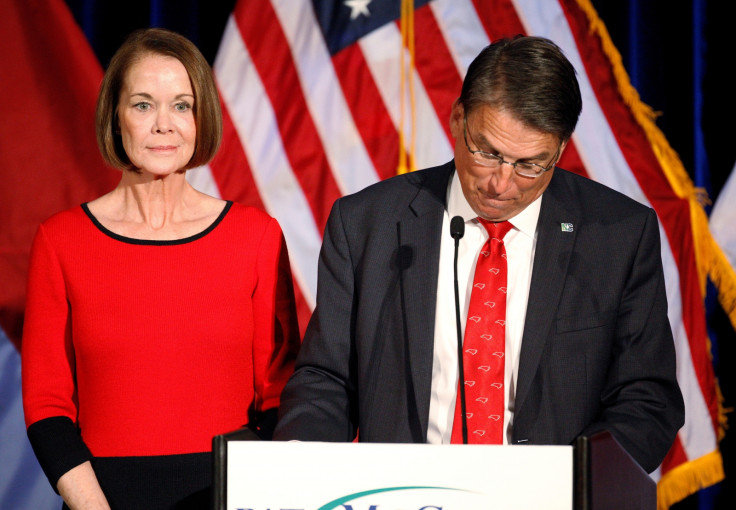North Carolina court halts law set to strip new governor's powers
The move is another step in the state's growing partisan divide.

Three judges in North Carolina temporarily halted a law on Wednesday (7 February) that stripped powers from recently inaugurated Democratic Governor Roy Cooper.
Republicans in the state's senate have lambasted the decision, saying that the requirement for all of Cooper's cabinet picks to go through state senate confirmation was "about good government".
The judicial move is the latest event in the southern state fractured by partisan political fighting. The law in question was pushed through by former Governor Pat McCrory in his final weeks in office after an election that saw him refuse to concede the election to his Democrat challenger for almost a month.
The stark rifts in trust between the two parties came loudly to the forefront at the end of 2016 when a deal brokered by then-governor-elect Cooper to repeal the controversial "bathroom bill", or House Bill 2 (HB2) fell apart in a special session of the senate convened to do just that.
Quoted in Politico, the ruling said that "the immediate and irreparable harm caused by the challenged legislation outweighs any possible harm in preserving the status quo prior to the challenged legislation being implemented." It went on to say that Cooper's choices for state cabinet secretaries "will not be disrupted in their daily activities to faithfully execute the laws."
The Republican co-chair of the State Senate Commerce and Insurance Committee, Wesley Meredith, called the decision "unprecedented in state history", adding: "But make no mistake: the General Assembly will meet to review the qualifications of Gov Cooper's cabinet nominees as allowed by the constitution, and we are going to get answers to questions regarding their qualifications, potential conflicts of interest and willingness to obey the law."

Cooper said in a statement that the court's decision was "absolutely correct" and that they "should not be intimidated by threats from legislative leaders" adding that the state needed to put "partisan confirmation games behind us".
Cabinet confirmation processes are not odd in the US – Donald Trump's secretary picks are currently going through an equally controversial situation in Washington, though for different reasons. However, the legislative process that led to Cooper's current situation gave an added glint of partisan power grab.
Along with the new confirmation process, the Republican majority state legislature speedily saw through other restrictions to Cooper's power just before he took the governor's mansion. Unlike his predecessor, McCrory, Cooper no longer has the power to appoint trustees of the University of North Carolina; nor does he have control over state and county election boards – though that too is being contested in courts.

Under all of these fights is the continuing argument over HB2, a bill that restricts people in government buildings to using the bathroom that corresponds to the gender on their birth certificate and one that is thought to have cost the state millions in lost investment.
LGBT rights groups across the state condemned the failure to repeal with the North Carolina NAACP going so far as to call Republicans "extremists" for continuing the bill.
Further deliberation on the committee hearing law will take place on Friday (10 February).
© Copyright IBTimes 2024. All rights reserved.






